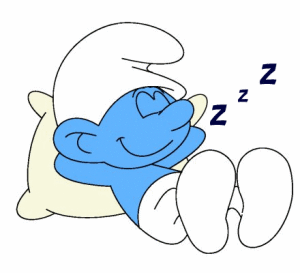The study of dreams have elicited research, studies, and experiments from scientists for decades. Studies have shown in depth research regarding the causes and effects of our dreams. The University of California Santa Cruz defines dreams a form of thinking that occurs when there is certain yet minimal brain activity going on, such as when you’re sleeping. Everyone at some point in their life has tried to experience lucid dreaming, or the dreaming in which you are consciously aware that you are in a dreaming state. Dreams have fascinated people since the beginning of time and the more scientists study dreams, the more information we are able to find out about ourselves and our brains.

Scientists state that dreams can affect the behavior and mood for the following day and studies are now showing the dreams can even affect the relationships between partners. A study done by researchers at the University of Maryland has provided evidence showing the connection between dreams and the behavior of the relationships. The relationships in which one of the members dreamed about cheating and lying between the couple had more arguments and fights. The study states that our partners other appears in 20% of our dreams which significantly increases the chances of our brains to dream up improbable, yet believable scenarios. However, could the study show more of a correlation between the relationship’s conflict and dreams rather than causation? It seems possible that the participants of the study could have come across a multitude of confounding variables. For example the participants knowledge of the study itself cause the data to alter, resulting in an inconclusive study.
Dreams not only can affect our relationships, behavior, and moods but they also can serve as a guide to our emotions that sometimes, we can’t even express. Many of us have experienced a dream in which we are in the middle of being chased by Chucky, Michael Myers, or whoever is trying to kill you in your nightmare. Psychotherapist Richard Nicoletti stated that being chased in a dream is a sign that you are avoiding a person or issue in your life. He goes onto state that the context of the situation and identity of the person is very important in further defining the meaning of the dream. Nicoletti also discusses the embarrassing situation in which you are naked in front of a large group of people. Despite what many think, this has little to do with anything sexual and is in fact deals with the person’s comfortability with themselves. Dreams in which involve water often deal with some sort of change or purification that we need or desire in our lives, says psychotherapist and author Jeffrey Sumber. However, what is most interesting about the dreams involving water is the context of the relationship between the person and the water. If the water is being poured onto the dreamer or the dreamer is relaxing in a pool, it signifies that the water is more of a purification and accepted change. On the other hand, if the dreamer is drowning it could signify that the person is being swallowed up, unwillingly, by change.
Dreams overall can have much more of an impact on our brains than we’d like to believe. Whether it is affecting our moods, relationships, or defining issues and problems in our lives, it is clear that dreams can affect our day-to-day actions without our knowledge. So next time you wake up in the middle of the night due to a crazy man chasing you down the street, remember to define the context of the chase and identify the man pursuing you.
http://www.apa.org/news/press/releases/2009/02/dreaming-behavior.aspx
https://www.psychologytoday.com/blog/dream-catcher/201105/the-impact-dreams-your-social-life
http://www.huffingtonpost.com/2013/05/10/dream-study_n_3253968.html

Dreams are very complex ideas. I took a philosophy class over the summer and we talked a lot about what dreams where from a non-scientific stand point. I think to further talk about this topic you will need to look at other application of dreams.
Do certain dreams always mean certain things? Why do we dream? Are dreams real, where do they fit in?
This website has some very interesting points and facts about dreams and how we interpret them as humans. Check it out. http://plato.stanford.edu/entries/dreams-dreaming/
I have always found dreams to be interesting. Whenever I wake up remembering a dream I often try to decode it. So, it is great that you have discussed some of the underlying meaning of dreams regarding water, falling, etc, in your blog here. I can also relate to dreaming of being chased in a Nightmare. I think that is why my mother bought me a dream catcher when I was younger, and I still have it to this day. Now a days, I would say that I don’t dream at all and I do believe that is because my dream catcher is doing its job. Analyzing your dreams is one end of the spectrum, but I do sometimes wonder about the myths behind dream catchers, and what “not” dreaming, or not remembering a dream when you wake up does to a person. Maybe you are interested in that too? If so, you can learn a bit more about the topic here 🙂 http://www.dream-catchers.org